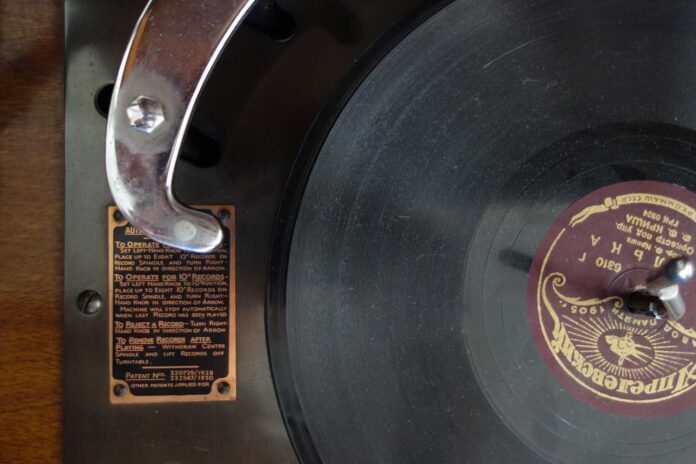
The Great 78 Project is a community effort for the “preservation, research and discovery” of 78 rpm records. That’s what the Internet Archive says.
Sony calls it “wholesale theft.”
Following up on book publishers’ (so far successful) attack against the Internet Archive’s lending project, Sony and five other major music labels are suing the IA for its project digitizing recordings pressed to 78 rpm records from 1898 to the 1950s.
The record companies are demanding the removal of the recordings and as much as $150,000 per infringed work. Their lawsuit, filed Friday in federal court in New York, cites “a small sample” of 2,749 recordings they claim are infringing upon their rights, which would put damages for just these recordings at $372 million.
The Internet Archive claims the purpose of the Great 78 Project is to create “a digital reference collection of underrepresented artists and genres.”
Sony and the other plaintiffs — Universal, Capitol, Concord, CMGI and Arista — claim this is a “smokescreen” designed to conceal the Internet Archive’s “theft” of their copyrighted music.
It might be surprising to read that these recordings are still under copyright protection. Due to the Music Modernization Act passed in 2018, many of these recordings will remain assets under copyright protection long after everyone that had anything to do with making them is dead. Part of the MMA was the “CLASSICS Act,” which extended the copyright of sound recordings created between 1956 and 1972 until February 15, 2067. Recordings made between 1924 and 1955 will be released in phases over the next several decades — though given the history of legislation extending copyright over and over again, you probably shouldn’t count on it.
In a statement released Monday, Internet Archive digital librarian Brewster Kahle clarified that the Internet Archive’s digitalization of 78 rpm records represent “preservation recordings… used in teaching and research.” Kahle described usage of the digitalizations as insignificant. “On average, each recording in the collection is only accessed by one researcher per month.”
Here’s an example of the Internet Archive’s presentation of a record recorded for the Great 78 Project:
Writer: Traditional
A Jazz Masterwork; NEW ORLEANS JAZZ; Fox Trot; – Traditional -; Trumpet; Trombone; Clarinet; Piano; Guitar; Bass; Drums.
Digitized at 78 revolutions per minute. Four stylii were used to transfer this record. They are 3.5mil truncated eliptical, 2.3mil truncated conical, 2.8mil truncated conical, 3.3mil truncated conical. These were recorded flat and then also equalized with Turnover: 400.0, Rolloff: -12.0.
The preferred versions suggested by an audio engineer at George Blood, L.P. have been copied to have the more friendly filenames.
Matrix number: HCO 2106
Catalog number: 37274
Other IDs from the record include: (HCO 2106); C 126-1
In addition to being threatened by the combined weight of the music industry, the Internet Archive is also engaged in a battle with four major American book publishers as a result of its National Emergency Library, an initiative launched during the pandemic to lend digital books to readers. The Internet Archive controlled how many copies were being lent out digitally, matching each copy sent out with a physical copy in their possession. The publishing industry maintained this was “willful mass copyright infringement”; a federal judge agreed in a decision last March. The non-profit Internet Archive has appealed.
Photo: Serge Zykov, CC BY-SA 2.0, via Wikimedia Commons














